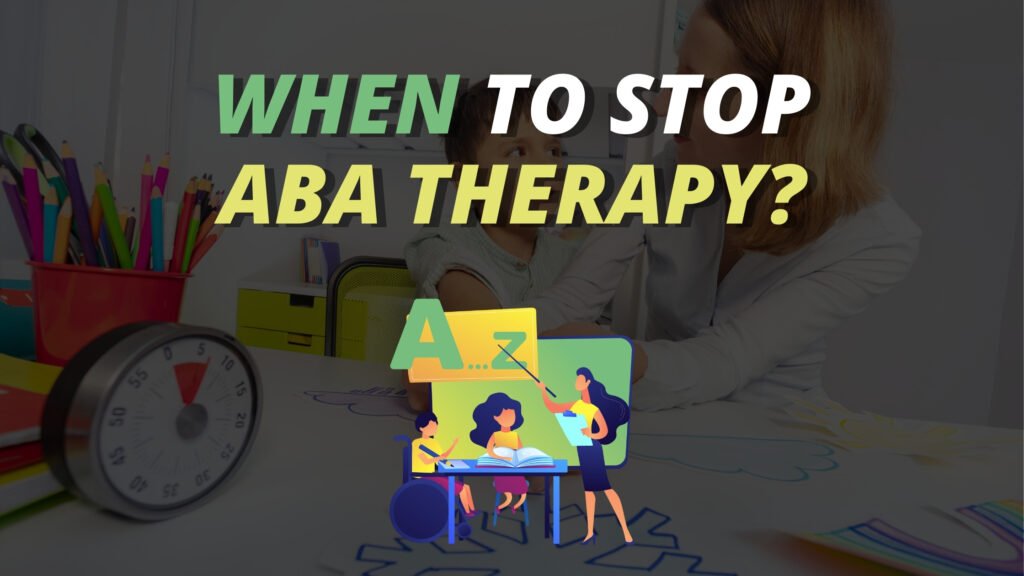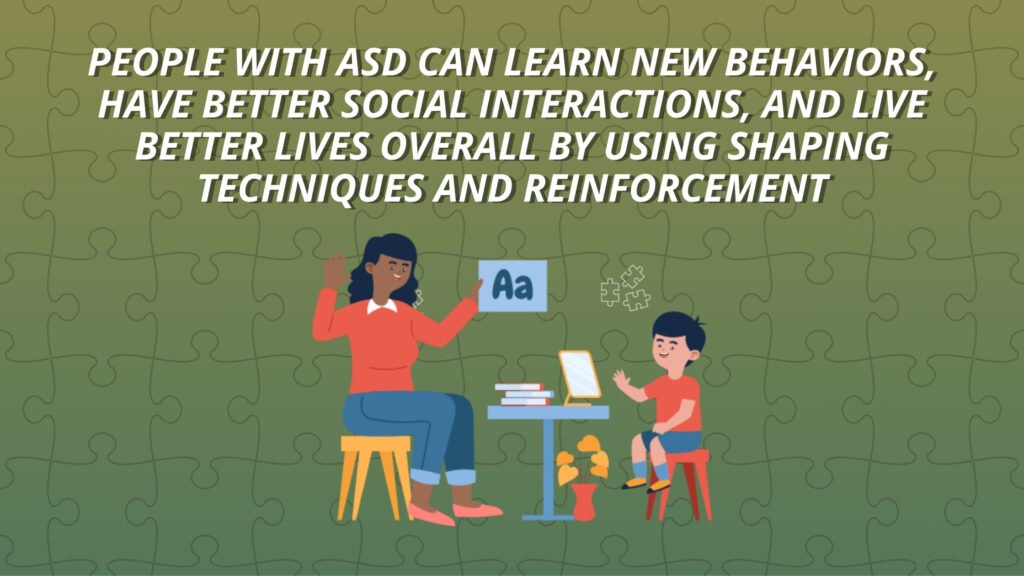ABA therapy has been around for a while now and is proven to be very effective in correcting behaviors induced by Autism Spectrum disorder. It is very important that the parents and caregivers have the basic know-how of ABA therapy, and especially know when to stop ABA therapy.

Today, we’re tackling a topic that’s often surrounded by questions, concerns, and sometimes even controversy: knowing when to stop ABA therapy. In this blog, we will explore the signs and considerations that indicate when it might be time to conclude ABA therapy for your loved one with ASD.
Has ABA therapy passed the time test?
ABA therapy has indeed stood the test of time, with its roots tracing back to the 1960s. Since then, it has undergone continuous refinement and adaptation, guided by research and clinical experience. This dynamic approach has allowed ABA therapy to remain at the forefront of evidence-based interventions for individuals with ASD.
Is ABA therapy effective?
Applied Behavior Analysis (ABA) therapy has been instrumental in supporting individuals with autism spectrum disorder (ASD), helping them develop crucial skills and navigate the world around them.

ABA therapy works because it takes a methodical approach to comprehending behavior and its underlying causes. A focused intervention that targets certain abilities or obstacles can be developed by ABA therapists by dissecting complex behaviors into smaller, more manageable components.
Is ABA therapy versatile?
It is important to emphasize the versatility of ABA treatment. It can be customized to match each person’s specific requirements and preferences, independent of age, developmental stage, or symptom intensity. ABA therapy provides a flexible framework that may adjust to changing priorities and goals, whether the focus is on improving independent living skills, treating communication deficiencies, or cutting down on repetitive behaviors.
Supported by Research
Moreover, a substantial body of research spanning decades attests to the effectiveness of ABA therapy. Its beneficial effects on decreasing dysfunctional behaviors, enhancing adaptive abilities, and encouraging increased independence in people with ASD have been shown in numerous research. Because of the abundance of empirical data, ABA therapy is now widely acknowledged as the best solution for autism.
When to Stop ABA Therapy?
Following are the factors that will tell you that it may be time to stop ABA therapy:
- 1. Goals Achieved: One of the primary indicators that it may be time to stop ABA therapy is when the individual has achieved the goals set forth at the beginning of the treatment. These goals could contain various areas such as communication, social skills, self-care, and academic achievements. If the desired outcomes have been met and the individual demonstrates consistent progress, it might signal readiness for a transition.
- 2. Diminishing Returns: Like any intervention, there may come a point where the benefits of continued ABA therapy begin to diminish. If you notice that progress has become constant despite ongoing sessions and adjustments to the treatment plan, it could be a sign that it’s time to explore alternative approaches or discontinue ABA therapy altogether.
- 3. Individual Preferences and Comfort: It’s crucial to consider the individual’s preferences, comfort level, and overall well-being when making decisions about therapy. If the person receiving ABA therapy expresses a desire to explore different activities or interventions, or if they exhibit signs of distress or discomfort during sessions, it’s essential to listen to their feedback and reevaluate the appropriateness of continuing with ABA therapy.
- 4. Developmental Transitions: As individuals with ASD grow and develop, their needs, interests, and strengths may evolve. Transitioning away from ABA therapy could coincide with significant developmental milestones or life transitions, such as entering adolescence or adulthood. During these times of change, it’s essential to reassess the individual’s goals and support needs to determine the most appropriate path forward.
- 5. Quality of Life Considerations: Ultimately, the goal of any therapy or intervention is to enhance the individual’s quality of life and promote their overall well-being. If continuing with ABA therapy begins to effect the individual’s autonomy, happiness, or sense of self, it may be time to consider alternative approaches that better align with their values and preferences.
- 6. Consultation with Professionals: Making the decision to stop ABA therapy should never be taken lightly. It’s crucial to consult with a team of professionals, including therapists, educators, physicians, and psychologists, to gather insights, explore alternative options, and ensure a smooth transition.
Conclusion
Knowing when to stop ABA therapy requires careful consideration, ongoing assessment, and a commitment to prioritizing the individual’s needs and best interests. By staying attuned to the signs and engaging in open communication with professionals and the individuals themselves, you can navigate this decision-making process with confidence and compassion. Remember, the journey doesn’t end with the conclusion of ABA therapy; it’s simply a new chapter in the ongoing quest to support individuals with ASD in reaching their fullest potential.
